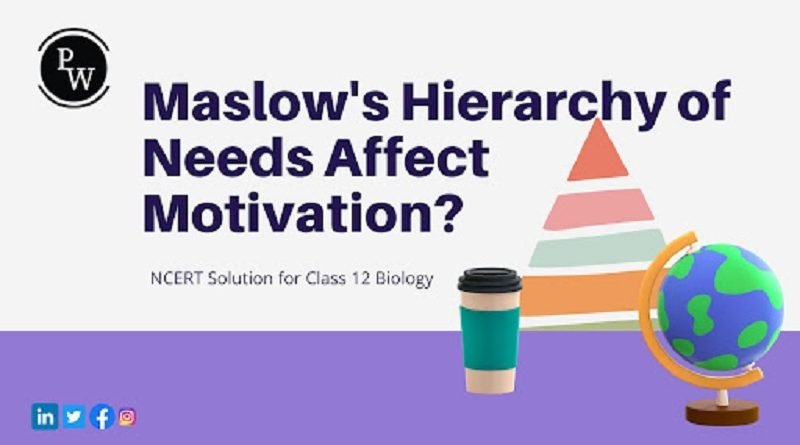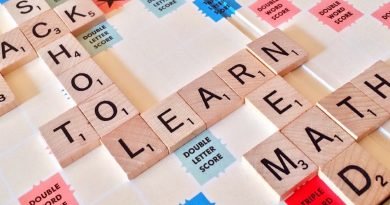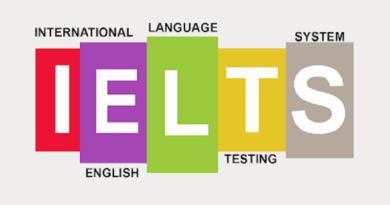How Does Maslow’s Hierarchy of Needs Affect Motivation?
According to the psychologist Abraham Maslow, all people seek to satisfy five basic kinds of needs. It argues that motivation is the result of fulfilling the basic five needs, which are: physiological needs, security needs, social needs, self-esteem needs, and self-actualization needs. According to him, the lowest level of the unfulfilled need is the foremost reason for the motivation in the behavior of the person, whether they are students or anyone else.
Today we will talk about these needs, the factors they carry, how Maslow’s theory is used in a student’s life, and why it is essential to use the theory in a student’s life for more details from NCERT solution class 12 Biology.
Physiological Needs
Let’s start from the below. Physiological needs are the priority of humans. Hunger, shelter, and water are the basic needs of a human being. If a person is hungry, they will eventually look for food. These basic needs cannot be ignored in any way possible. Now, if you look at the above example, the student can strive with hunger for a very long time and focus on studies. At one point, he/she will get up to fulfill their physiological needs.
Safety Needs
Safety is also a crucial issue for the students. Once the physiological need is satisfied, people look after their security needs. It includes their school environment, their home environment, etc. The arguments in the home, the area they’re living in, etc., psychologically impact the students. In school as well, students face so many problems as they get bullied, get scolded, or ignored by the educator without any reason.
Social Needs
The next one in the line is social needs. After fulfilling their physiological and safety needs, here come their social needs. A child needs to be loved and cared for by their parents, friends, and everyone. When a child is neglected, he/she finds affection in the groups. They think that they’ll find affection and the attention they crave in groups.
Self-esteem
Needs are a must for everyone, not only for children but for every human being. Self-esteem includes individuality, respect, and importance. Most students are subconscious, and you can fear speaking up, fearing that people will judge or make fun of them. Self-esteem can be of two types: in one, you crave accomplishment, confidence, and competence, and in another, you crave status, reputation, and acknowledgment.
Self-actualization needs
After satisfying all four needs, here comes the last need, which is the self-actualization need. These are the shortcomings of your highest priority needs. If these needs are not fulfilled, you’ll be unable to fulfill your highest potential need, which means your self-actualization needs. This need means to satisfy their ownself’s potential. They crave self-improvement.
Maslow’s Hierarchy of needs
Physiological/basic needs
There is a list of physiological needs for everyone, which contains:
- Food
- Shelter
- Water
- Sleep
- Comfortable environment to study
Safety needs
- Safety rules and regulations
- Security
- The feeling of safety (mentally and physically)
- Home and school environment
Social needs
- Acceptance
- Love and care
- affection
- Joining clubs and volunteering
Self-esteem needs
- Extra curricular activities
- Inter-school competitions
- Give rewards for achievements
- Confidence
Self-actualization needs
- Help students achieve their goal
- Make a good career plan
- Independent
- Analytical skills
- Reasoning
Maslow’s theory in student’s life
Students in the classroom may not be focused. There can be so many reasons for this behavior: classes, family, personal issues, hobbies, friendship, passion, and many more when students have that much in mind about how they will focus on studies. The student’s mind is effortless, and cannot balance their problems and studies well. They focus on one issue at a time. With problems, they focus on the problem as you have already heard of the term, “Every action has an equal and opposite reaction.” So now, we will discuss Maslow’s theory in student life.
Why is it important, and how does this theory affect students?
Maslow’s theory is directly related to life and learning through motivation. In order to attain achievement in the classroom and in life, their five basic needs must be satisfied. When all the needs are satisfied, students will complete their learning without distraction and with complete motivation.
For example, if a child is hungry or gets bullied, they’ll feel good and will not want to go to the classroom. The study will be affected in any way you look at it. So, it is necessary to fulfill the needs to get motivated.
Conclusion
Considering all the above factors, we can conclude that Maslow’s hierarchy of needs affects students’ motivation. And when their needs are satisfied, students give their best and accomplish their goals without trouble. Maslow provides a chart showing how to fulfill your needs; without fulfilling one, you cannot move on to another. We hope that this information will help you with your queries.
FAQ
The need is the desire to accomplish anything, and the motivation is the energy that helps to accomplish it.
For their welfare and the welfare of everyone, it is necessary to understand the needs of the individual.
The hierarchy from above to below is: Self-actualization needs, self-esteem needs, social needs, security needs, and physiological needs.




